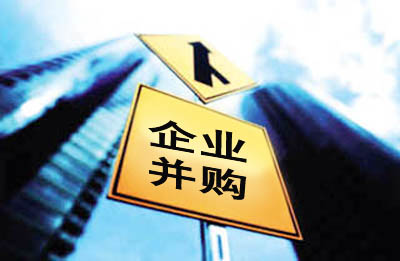Media Report

- The Financial Times reports: "China is readying new restrictions on outbound foreign investment in an effort to curb capital outflows that are putting downward pressure on the renminbi and draining foreign exchange reserves, according to people who have seen a draft of the rules. The State Council is most concerned about outbound mergers and acquisitions worth more than $10bn said two people familiar with the government's deliberations. They added that Chinese officials would scrutinise purchases of more than $1bn if they were outside the investor's core business. Meanwhile, state-owned enterprises will not be allowed to invest more than $1bn on a single overseas real estate transaction...Chinese regulators often relax and tighten rules informally, allowing them to react flexibly to changing market conditions...'This step signals the government's conventional preference for stability and control rather than economic liberalisation and resulting volatility.' [said Eswar Prasad, a China finance expert at Cornell University]"
- Bloomberg reports: "If U.S. President-elect Donald Trump delivers on campaign pledges to get tough with China on trade, lining up against him likely will be another powerful adversary: American multinational corporations. These companies have more than $228 billion in China investments at stake in the event of a trade conflict between the world's two biggest economies. Their track record of pushing back against Washington on trade indicates they'll back their own interests -- and thus China -- if enmity erupts. A trade confrontation between China and the U.S. would ripple across the globe, potentially disrupting China's vast chain of suppliers throughout Asia along with the price of consumer goods it exports to markets from New York to New Zealand...'It's a conversation, nobody gets to set the agenda unilaterally around here because of the separation of powers.' [said John Cornyn of Texas, the No. 2 Senate Republican]"
- The Associated Press reports: "A Chinese state newspaper on Tuesday criticized Singapore over the Southeast Asian city-state's military training with self-governing Taiwan, following the impounding of nine Singaporean infantry fighting vehicles transiting through Hong Kong...'China opposes the outside world having any form of military cooperation or exchange with Taiwan,' the paper said. 'Singapore, a state that has diplomatic relations with China, should be cautious in this regard.' Singapore's defense minister, Ng Eng Hen, said Tuesday that the city-state supports the 'one-China' principle...'Any training matters between us and other countries are bilateral, and we should not unnecessarily, until the facts come out, muddle the picture and impute various motives,' he said...Some experts have speculated that China would use the seized military shipment to pressure Singapore to adopt a friendlier stance toward China on the [South China Sea] dispute."
Calendar
- 2016-11-28 Antibiotic-resistance genes in Beijing’s smog are nothing to worry about, Chinese officials say
- 2016-11-25 Trump will pursue 'regional hegemony' in South China Sea: Chinese academic...
- 2016-11-24 China's Economy Looks Like It's Remaining Stable
- 2016-11-23 China Has Warned of Retaliation if U.S. Levies Tariffs, Commerce Secretary Says
- 2016-11-22 China Touts Its Own Trade Pact as U.S.-Backed One Withers
- 2016-11-21 Recent Developments Surrounding the South China Sea
- 2016-11-20 Xi Meets With Obama, Says U.S. and China at 'Hinge' Moment
- 2016-11-18 China Presses Tech Firms to Police the Internet
- 2016-11-17 Panel Recommends Banning Chinese State Companies From U.S. Acquisitions
- 2016-11-16 In Trump’s China, Industrial Subsidies Loom Large
News
- Bloomberg Trump Confronting China on Trade Risks Corporate Backlash
- The Associated Press China Blasts Singapore's Military Cooperation With Taiwan
- The Financial Times China to clamp down on outbound M&A in war on capital flight
- The Wall Street Journal China Looks to Loosen Job Security Law in Face of Slowing Economic Growth
- Reuters China paper says Singapore troop carriers should be 'melted down'
- The Financial Times Chicago Stock Exchange sets out voting power in Chinese bid
- Reuters Fewer North Korean workers come to China as border trade tightens
- Bloomberg China Steps Up Mortgage Controls in Some Property Markets
- The Associated Press 7 injured by turbulence as China airliner approaches Sydney
- The Wall Street Journal In Long Arc of U.S.-China Ties, Trump's a Curveball
- The Guardian Putin brings China's Great Firewall to Russia in cybersecurity pact
- The New York Times China Takes a Chain Saw to a Center of Tibetan Buddhism
- BBC China plans to build $2bn film studio
Commentary
- The Diplomat Is Vietnam Reigniting a Fire in the South China Sea?
- Fortune China's New Way of Controlling Society Will Grade You on Behavior
- Forbes A Resilient Mini-Me Rival Is Challenging China's Control Of A Disputed Sea
- Foreign Policy Facebook Must Stay Out of China
- The Wall Street Journal Is Trade With China a Factor in Rising Mortality Among Middle-Age White Men?
- Quartz To stop relying on Western hand-me-downs, African countries are importing Chinese textile companies
- The New York Times: Sinosphere Author's Vision of a Future Beijing Looks to China's Present
